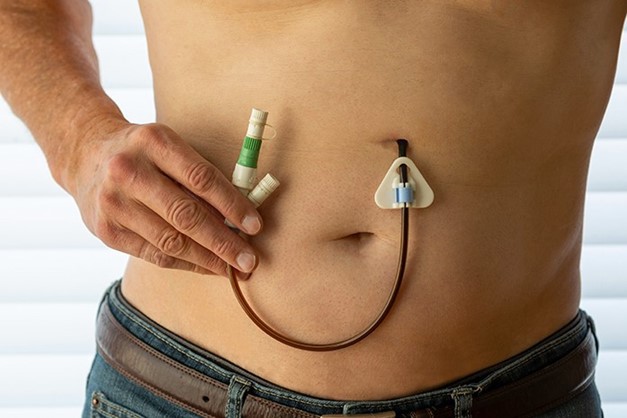A nurse is preparing to obtain informed consent from a client who speaks a different language than the nurse and is scheduled for surgery.
Which of the following actions should the nurse take?
Have the client nod to indicate understanding.
Recommend an interpreter who is the same gender as the client.
Use medical terminology when explaining the procedure.
Address all questions to the interpreter.
The Correct Answer is B
This statement indicates that the nurse should take steps to ensure effective communication with the client by recommending an interpreter who is the same gender as the client.
This can help to facilitate understanding and comfort during the informed consent process.

Choice A is wrong because nodding alone is not sufficient to indicate understanding.
Choice C is wrong because using medical terminology can be confusing and may not facilitate understanding.
Choice D is wrong because questions should be addressed directly to the client, with the interpreter facilitating communication.
Nursing Test Bank
Naxlex Comprehensive Predictor Exams
Related Questions
Correct Answer is A
Explanation
According to a study published on PubMed, it is appropriate to change alimentation tubes and feeding bags every 72 hours rather than every 24 hours.

Choice B, Aspirate residual volume every 4 hr, is not necessary for continuous enteral feedings through a gastrostomy tube.
Choice C, Flush the tubing with 10 mL of water every 2 hr, is not necessary for continuous enteral feedings through a gastrostomy tube.
Choice D, Heat the formula to 40.5° C (105° F), is not necessary for continuous enteral feedings through a gastrostomy tube.
Correct Answer is A
Explanation
To calculate the dose of gentamicin to administer to a client who weighs 220 Ib, first convert the client’s weight from pounds to kilograms.
220 Ib is equivalent to 100 kg (220 Ib /.2 Ib/kg = 100 kg).
Then, multiply the client’s weight in kilograms by the dose of gentamicin per kilogram: 100 kg * 2 mg/kg = 200 mg.
Therefore, the nurse should administer 200 mg of gentamicin.
Choice B is wrong because 180 mg is not the correct dose.
Choice C is wrong because 400 mg is not the correct dose.
Choice D is wrong because 440 mg is not the correct dose.
Whether you are a student looking to ace your exams or a practicing nurse seeking to enhance your expertise , our nursing education contents will empower you with the confidence and competence to make a difference in the lives of patients and become a respected leader in the healthcare field.
Visit Naxlex, invest in your future and unlock endless possibilities with our unparalleled nursing education contents today
Report Wrong Answer on the Current Question
Do you disagree with the answer? If yes, what is your expected answer? Explain.
Kindly be descriptive with the issue you are facing.
